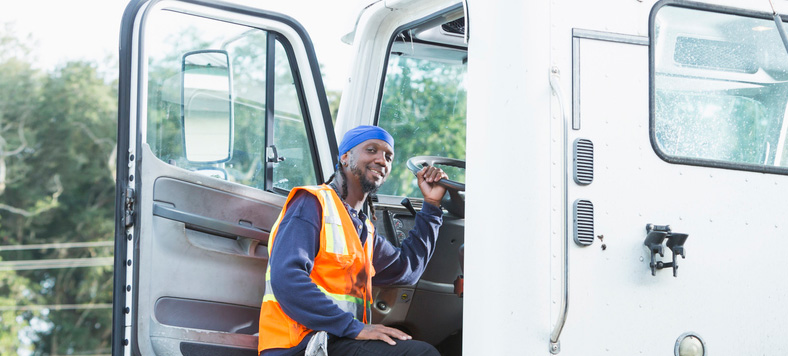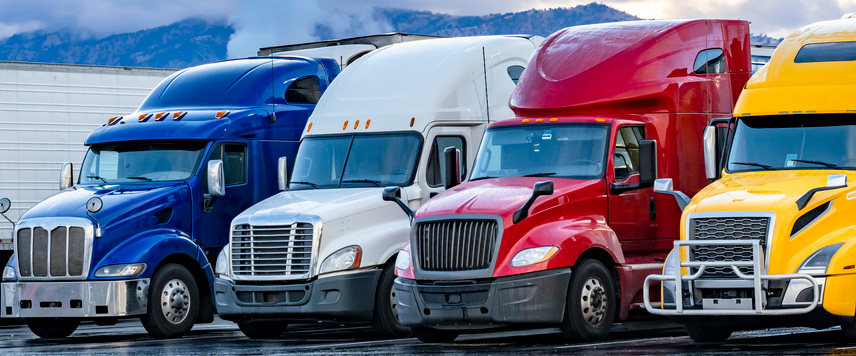For years, the demographics for truck drivers has shown that there is a large group of professional truck drivers preparing to retire over the next few years. To fill the gaps being left in the trucking industry by these retirees, companies need to bring in new and talented drivers, and there are so many untapped groups of workers available to do just that. Women are an underutilized truck driving resource, as well as next generation drivers. While we have covered these groups in the past (see our blogs from January 2023 and June 2023), minority truck drivers are still often overlooked. For many Americans, the stereotypical truck driver looks more like an overweight version Kurt Russell or Kris Kristofferson than anyone that actually drives a semi-truck today.
In 2001, only 27% of truck drivers were African American or Latino American. In the past twenty years, though, that number has risen to 40%, and now also includes a growing number of Asian Americans. What has changed in the trucking industry? And are those changes indicative of further inclusion and diversity coming in the future?
Today, the LZBlog is going to dive into why more minority truck drivers should soon be joining the industry. Don’t forget to look back on our previous blogs for more recruitment tips and tricks!
“Just the facts, Ma’am”
As everyone has seen, a new spotlight has been pointed on the trucking industry in the past four years. Unlike the time before the Covid-19 pandemic, many people now know that truck drivers move our goods across the country, and consumers are showing more appreciation for those drivers in their day to day lives. However, most people don’t realize that driver turnover in trucking is still around 90% for some carriers. Also, the casual observer doesn’t see that truckers, on average, spend 40% of their workday waiting to unload and load, and even fewer realize that these hours are typically unpaid. The demands and requirements on truck drivers are well-documented, making it easy to see why fewer people are joining the transportation industry. While the issues with the trucking industry itself are being tackled by everyone from the federal government to small business owners, recruiters for truck driving businesses are having to get extremely creative to find new drivers.
After the year 2000, the number of minority truck drivers began to grow incrementally. Since 2001, the number of African American and Latino American drivers tracked by experts has grown by 11%, from 27% to 38% of the total number of counted drivers. Asian American truck drivers, who now account for 2-3% of minority drivers, were not even counted among statistics at the beginning, not being researched and documented until the past couple of years. While there may be miles to go, the foundation is there for the trucking industry to be even more inclusive over time, something vitally important to sustaining our nation’s most relied on branch of industry.
Bringing it all together
As more and more millennials begin to join the trucking profession, inclusivity will gradually become the norm. The need to hire younger drivers more quickly compels companies to share the values of potential millennial and Gen Z drivers, meaning the company culture must be all-embracing, or those young drivers will go to other businesses that do share their values. For extra support these days, there are groups on social media that offer assistance to minority drivers, such as the Black Truckers United group. In Colorado, an African American couple has even started a truck driving academy, specializing in training minority drivers. It would be a boon for any trucking company to be aligned with minority support organizations like this, as it helps facilitate more diversity and acceptance between organizations.
Getting your house in order
As with most great habits, though, the work must begin on a company’s home turf. One way to promote diversity within your business is to create an atmosphere of inclusion there. Workplace rules governing harassment and discrimination are easy places to start. An even easier way is to ensure that every employee has the same pay and benefits as their coworkers in the same area. Hold regular diversity training sessions to give your current employees a chance to better understand and appreciate people from different backgrounds.
After that, it is recommended to focus on recruiting the best drivers for your company. Many recruiters will tell you that “word of mouth” is a major factor for drivers looking for a new job, particularly from one minority driver to another. For an additional advantage, remember to make your recruitment marketing materials a reflection of your current, diverse workforce; mention inclusivity in your content and make creative images that show your company hiring the minorities, women, and younger drivers already on staff. Some companies have turned to internships and scholarships for recruits in underrepresented groups. Others, like Ellen Voie, president of Women in Trucking, stated that hiring minority drivers must start with hiring more minority recruiters. Just as with minority drivers seeing other truckers that look like them, once minorities see that recruiters look like them too, they’ll feel more comfortable signing with your company.
Don’t be afraid to ask minority drivers currently in your company how they would continue to attract diverse drivers; their insight is invaluable to you and utilizing it can only further improve your chances of bringing in more quality drivers.
Conclusion
Diversity and inclusivity are the trademarks of the most successful companies. Not only does it mean better business practices, but it is also important for being a good human being. There are so many ways to hire drivers, and the needs of the trucking industry are great but, with a little care and planning, the trucking industry is set to become one of the most inclusive industries in the country, leading the way for other businesses to be the same.
Are you not meeting your recruitment goals? Join LzRecruit Network! Lower your Cost Per Lead and Time to Hire today. We offer 100% direct leads. For more information on the LzRecruit Network, contact us at 615-928-2540.
____________________________________________________________________________
Meaghan Goldberg covers recruitment and digital marketing for Lionzone. A Patterson, GA native, after graduating from both Valdosta State University and Middle Tennessee State University, Meaghan joined Lionzone in 2018 as a digital recruitment strategist before becoming the social media manager.
Resources:
https://www.prodrivers.com/news/2021/12/40193284/more-minority-representation-among-truckers
https://www.cartertruckdrivingacademy.com/
https://www.centerlinedrivers.com/resources/blog/diversity-in-trucking




